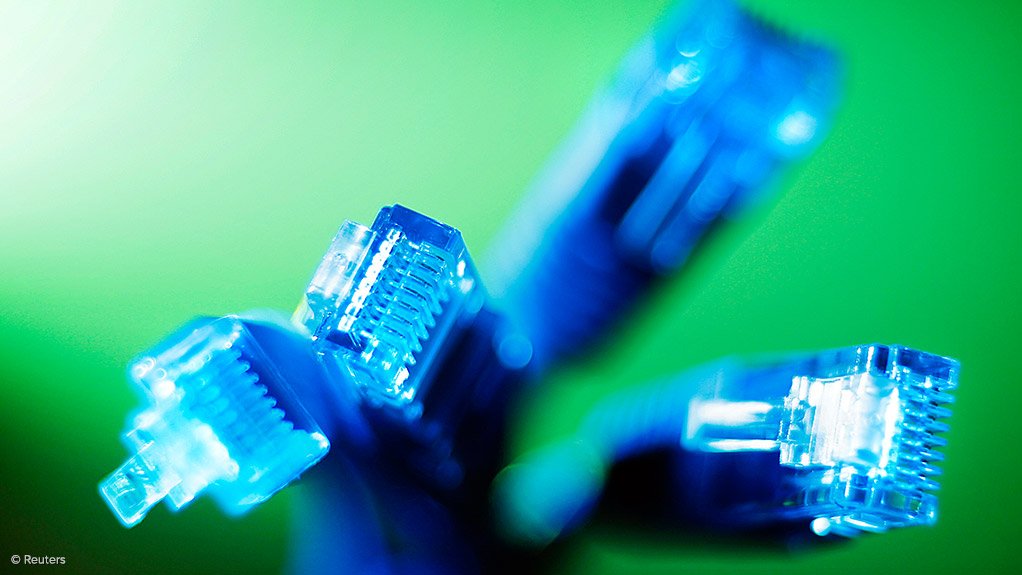/ MEDIA STATEMENT / The content on this page is not written by Polity.org.za, but is supplied by third parties. This content does not constitute news reporting by Polity.org.za.
Eighty-eight percent of Internet users in South Africa, compared with 83% globally, believe affordable access to the Internet should be a basic human right, according to the “CIGI-Ipsos Global Survey on Internet Security and Trust.”
The results of the new survey, commissioned by the Centre for International Governance Innovation (CIGI) and conducted by global research company Ipsos, were presented today in Ottawa, Canada.
According to responses, two thirds of Internet users are more concerned today about online privacy than they were compared to one year ago (64%). When given a choice of various governance sources for the Internet, the majority (57%) chose a multi-stakeholder model “of technology companies, engineers, non-governmental organizations and institutions that represent the interests and will of ordinary citizens, and governments.” When it comes to privacy concerns and Internet governance, respondents in South Africa had a higher concern for online privacy (73%), compared to global attitudes. Trust of multi-stakeholder governance of the Internet in South Africa (65%) was higher than the global average and the most preferred ahead of options such as the United Nations.
Among the top areas of concern for global Internet users, criminal hacking into personal bank accounts (78%) ranks highest followed by stolen personal information, such as private messages and photos, through hacking (77%), and further followed by private companies monitoring the activities of Internet users and then selling that information for commercial purposes without explicit consent (74%).
“The remarkable findings of this survey of global attitudes dramatically underscore that fears about human security have moved from the physical world to now include the virtual world. There is a gaping trust deficit in the Internet as people around the globe increasingly worry that their online identities and communications will be compromised or stolen by those who operate in the dark recesses of the Internet,” says Fen Hampson, Director of CIGI’s Global Security & Politics Program. “Unless trust is restored in the Internet through creative governance innovations its real potential to promote human development and global prosperity will be severely compromised.”
Other concerned focused on governments and institutions with a full majority of Internet users worried about important institutions in their country being cyber attacked by a foreign government or terrorist organization. Two-thirds of Internet users are concerned about governments censoring the internet and government agencies from other countries secretly monitoring their online activities.
“Overwhelming global public support for the idea that access to the Internet should be a human right also shows just how important the Internet has come to freedom of expression, freedom of association, social communication, the generation of new knowledge, and economic opportunity and growth,” says Hampson. “Right now, one third of the world's population is online but two-thirds of the world's population is not. Unless they are brought online, a world of Internet ‘have and have-nots’ will not only contribute to income inequality, but also stifle the world's full potential for prosperity and innovation.”
When it comes to governance, Internet users prefer the broadest form of representation through a multi-stakeholder model that represents the interests and will of ordinary citizens as well as governments. Only 48% of Internet users believe their government does a very good job of making sure the Internet in their country is safe and secure, which underlines the wariness of the role of governments in Internet governance.
The CIGI-Ipsos Global Survey on Internet Security and Trust will be presented on November 25 to the Global Commission on Internet Governance (GCIG). The GCIC, an initiative by CIGI and Chatham House, is meeting from November 24 to 25 in Ottawa, Canada to articulate and advance a strategic vision for the future of Internet governance.
QUICK FACTS ON ATTITUDES OF INTERNET USERS
On access:
- 83% believe affordable access to the Internet should be a basic human right.
- 81% say the Internet is important for their own economic future and livelihood.
- On privacy and monitoring:
- 64% are concerned about their online privacy compared to one year ago.
- 36% believe private information on the Internet is very secure.
- 74% are concerned about private companies monitoring online activities and selling that information for commercial purposes without explicit consent.
- 62% are concerned about government agencies from other countries secretly monitoring their online activity
- 61% are concerned about their government agencies secretly monitoring their online activity
- On cyber attacks and censorship:
- 72% are concerned about important institutions in their country being cyber-attacked by a foreign government or terrorist organization.
- 78% are concerned about a criminal hacking into their personal bank accounts.
- 77% are concerned about someone hacking into their online accounts and stealing personal information like photos and private messages.
- 64% are concerned about governments censoring the Internet.
- On governance:
- 57% would trust a combined body of technology companies, engineers, non-governmental organizations and institutions that represent the interests and will or ordinary citizens and governments to play an important role in running the Internet.
- 47% would trust their own government to play an important role in running the Internet.
ADDITIONAL INFORMATION:
The survey of was carried out in: Australia, Brazil, Canada, China, Egypt, France, Germany, Great Britain, Hong Kong, India, Indonesia, Italy, Japan, Kenya, Mexico, Nigeria, Pakistan, Poland, South Africa, South Korea, Sweden, Tunisia, Turkey and the United States. For more country-specific information and data collected as part of the CIGI-Ipsos Global Survey on Internet Security and Trust, please visit: www.cigionline.org/internet-security.
EMAIL THIS ARTICLE SAVE THIS ARTICLE
To subscribe email subscriptions@creamermedia.co.za or click here
To advertise email advertising@creamermedia.co.za or click here











